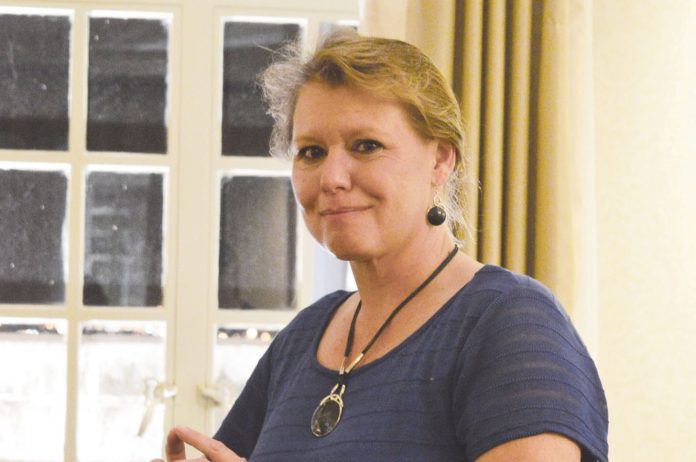
by Traci Chapman, Staff Writer
Chronic dialysis is difficult for any patient; when that condition is compounded by a wound or tracheostomy, it’s even worse – and for many families those conditions could mean separation and loss, because local treatment options have been so limited.
Not so anymore, as Oklahoma City’s New Direction Home Dialysis brings treatment to the heart of the patient’s life, in the process making it possible for them to stay with their families and continue their lives, in a way never before possible.
That means people who before had to go to Texas, to Ohio or to some other far-flung medical facility for long-term, frequent dialysis treatments now can receive those services at home, where they can continue their day-to-day routine and remain with the family and friends they love.
“The bottom line is outcomes, it’s quality of life, it’s being able to keep families together,” New Direction Administrator Leslie Whiles said. “For a patient to have to go far away, to another state in many cases, is such a hardship – physically, financially, emotionally.”
“For example, we had a patient who was forced to go to Cleveland for treatment, and she was at the end of her rope – she didn’t even feel like it was worth it because it was just too much for her to bear,” she said. “No one should ever have to go through that, and we want to make sure no one has to.”
Whiles knows a lot about dialysis, with almost 30 years in the field. As administrator for Sooner Acute Dialysis, Whiles sees every day how the right program can make a difference in the lives of patients needing inpatient services; with New Direction, Whiles strived to bring the same level of care – and caring – to those who can take part in a long-term treatment option at home.
That’s why finding the right nurses is paramount, Whiles said. As the company grows – New Direction’s staff of three recently grew to six nurses – it’s important to look not just at medical skills, but also at what lies underneath.
“Because we are independent, we are able to focus solely on taking care of our patients, knowing them, knowing about their lives and their families,” Whiles said. “Of course, it’s about care and nursing, but there’s also the deeper ability to bond with people who are going through a very difficult experience.”
Home dialysis means freedom to New Direction’s patients, whether they’re 20 or 80 – and the company has patients of all ages, backgrounds and temperaments. They might be retired, a student or someone working to support their family while undergoing regular treatments. However they might be different, what Whiles and her staff have seen with all was the benefit of home dialysis.
“There is such a transformation because our patients can take control of their lives again, they aren’t isolated in treatment,” Whiles said. “It removes much of the stress and makes their treatment more effective.”
New Direction offers both Peritoneal and Home hemodialysis treatments. Both have more advantages than allowing patients to take treatments at home, Whiles said.
“There are fewer dietary restrictions and we’ve seen less negative side effects like nausea, cramping, weight gain and vomiting,” she said.
A benefit of Peritoneal dialysis, or PD, is that patients can have treatments, even at work and on vacation, Whiles said. Home hemodialysis – HHD – is broken into traditional and short daily treatments.
Traditional patients usually undergo three four-hour, or more, weekly sessions, while short daily HHD features shorter treatment times more often.
“With that, we would probably see two to three hours per session four to seven times a week,” Whiles said. “It really is a matter of choice for the patient.”
While New Direction nurses are an integral part of each patient’s care, so too are each individual’s “care partners,” family members or friends who, along with the patient, are trained on dialysis equipment use and care, as well as other ancillary information.
“Care partners can be involved in setting up the machine and supplies, inserting dialysis needles, helping to record medical information and post-dialysis care and machine maintenance,” Whiles said.
“It’s very important that the individual have a support system in place and they need to have a caregiver, or partner, who can go through the competency evaluation and who is willing to do the work involved in successful treatments,” Whiles said. “Without that, home dialysis really isn’t a viable option.”
But, for those who can take part, home dialysis can mean a whole new life just waiting around the corner.
“It’s important for us to do all we can – we’re an Oklahoma company and we’re going to take care of our people,” Whiles said. “That’s what we’re meant to do, what we’re dedicated to doing.”












